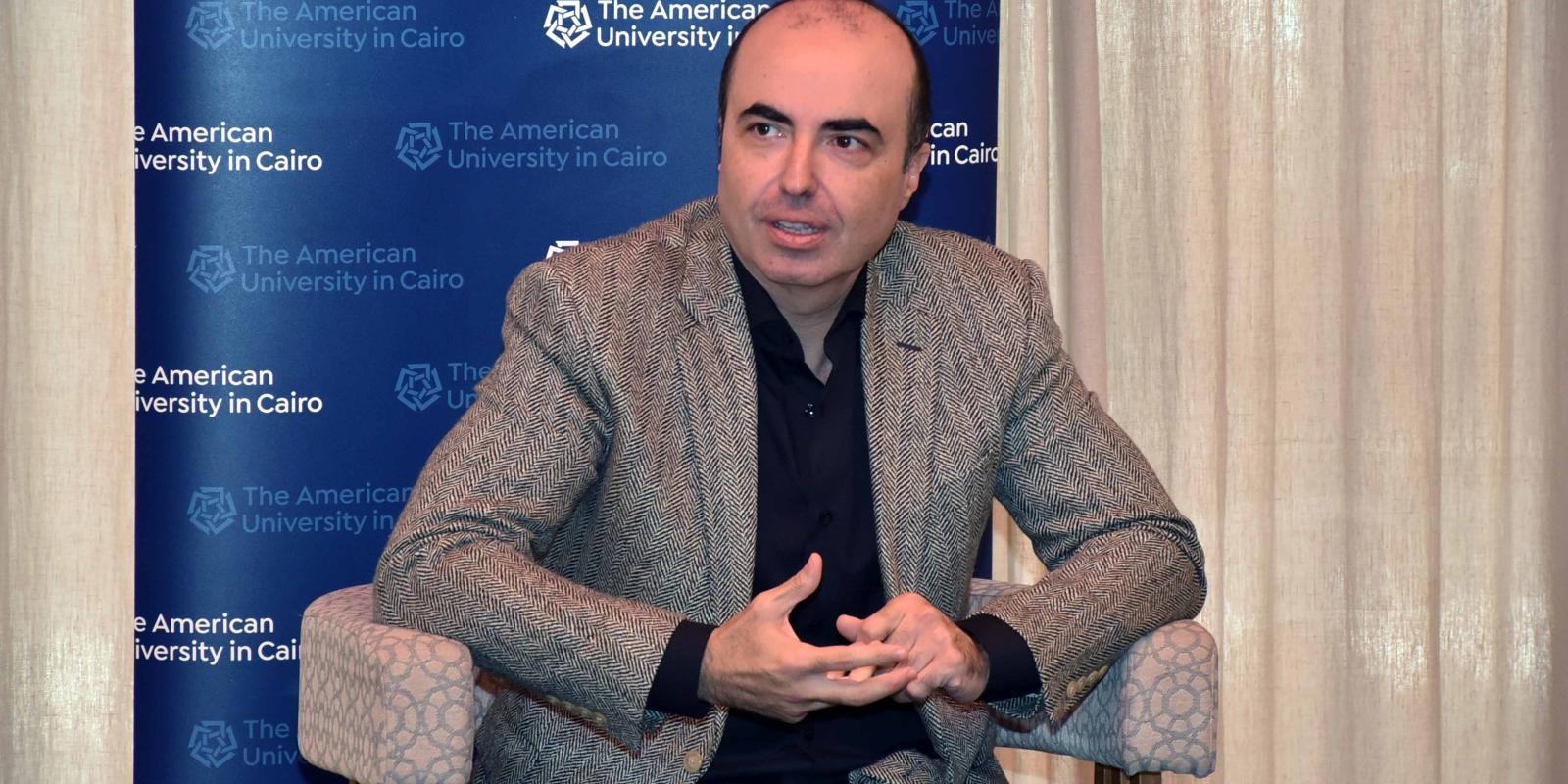
AUC Team to Launch Egypt’s First Healthy Aging Study
"Four cups of coffee a day could help prevent Parkinson's disease and dementia," according to Mohamed Salama, professor at AUC’s Institute of Global Health and Human Ecology, who presented his research on healthy aging, the first of its kind in the Middle East, during the Faculty at the Forefront media panel.
The Longitudinal Study of Egyptian Healthy Aging (AL-SEHA), the first nationally representative panel study on aging in Egypt, aims to fill knowledge gaps that are necessary to set health, social and economic policy priorities. AL-SEHA also works on prioritizing resources and promoting effective strategies for healthcare and social systems in Egypt, in addition to improving the lives of the country’s aging population. The project is set to launch in 2024, thanks to Salama; Hoda Rashad, director of AUC’s Social Research Center; and a team from the center.
"Four cups of coffee a day could help prevent Parkinson's disease and dementia."
“There has been a growing global interest in healthy aging studies because these reveal the challenges and opportunities that will face the world in the future, especially in low- and middle-income countries that suffer from a scarcity of data in this field,” he said.
Egypt is a particularly interesting example since it is the most populous Middle Eastern country as well as the third most populous country in Africa, Salama noted. “Although the Egyptian population is still young, the number of older people is increasing,” he said. “Egypt is in an ideal position to prepare its population for healthy aging based on medical, economic and social research that effectively addresses the multifaceted challenges faced by an aging society.”
"There has been a growing global interest in healthy aging studies because these reveal the challenges and opportunities that will face the world in the future, especially in low- and middle-income countries that suffer from a scarcity" ... This valuable information can also help reduce access inequities and age-based discrimination while facilitating the evaluation of health policies and analytical studies."
The study will include about 20,000 participants aged over 50 representing all of Egypt’s governorates. The study will span at least 10 years, with researchers following up with participants every two years to track changes in their health. Salama and the team will collaborate with government agencies, civil society and not-for-profit organizations in Egypt, in addition to the SHARE project, which researches the connection between policy and the quality of life for European citizens and beyond.
Salama hopes the findings will inform policy and planning to improve healthcare services for older adults in Egypt. “This valuable information can also help reduce access inequities and age-based discrimination while facilitating the evaluation of health policies and analytical studies,” he said.
In addition to paving the way for better health outcomes, the study will also shed light on the impact of climate change and societal changes. “These changes include, for example, the continuing trend toward urbanization, with more older people moving to the cities, which in turn affects the way older people live and creates new challenges related to access to health care services and social isolation,” Salama explained.
